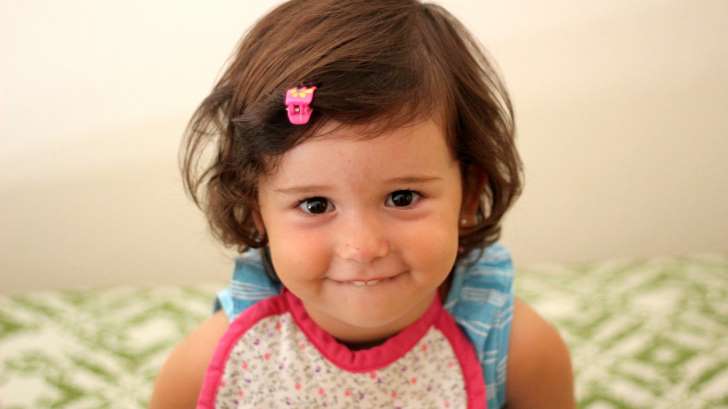Have you ever eavesdropped on other parents on the playground? Don't they sound, rather, er, wishy-washy sometimes? "Sophie, we don't throw sand at our friends, OK?" Or, "Declan, it's time to go now, OK?" Or, "Madge, leave that dog poo alone, OK? Poo is yucky, OK?"
你有没有在操场上偶然听到其他父母的谈话?有时候,他们是不是含糊其辞?"苏菲,不要向朋友扔沙子,好吗?"或者,"德克兰,我们得走了,行不行?"再或者,"马格,不要碰狗屎,可不可以?便便很恶心哎,好不好?"
The thing is, for Madge, it is not OK. She wants to roll in dog poo more than anything she's ever wanted in her two years on earth. And Declan would rather spend the night alone on the playground, exposed to the elements, digging a hole for warmth under the see-saw, than go home and climb in your stupid bathtub. Sophie just really wants to blind her playmate.
但问题是,对于马格来说,这是不行的。她才两岁啊,在她这个年纪,她就是想要滚狗屎。而德克兰宁愿一个人在操场上呆一整晚,暴露在世界中,在跷跷板下挖洞取暖,也不愿意回家爬到愚蠢的浴缸中洗澡。而苏菲就是想让玩伴眼瞎。
Which makes the suffix "OK?" kind of absurd. And yet we all do it, right? Sometimes I listen to myself instructing my four-year-old: "We're going to leave the beach now, OK?" which obviously leaves the door open for him to say no, it's not OK.
所以,末尾说一句"好不好"就有点荒唐了。但大家都是这么做的,对吧?有时候,我在教育四岁大的儿子时也会说:"我们不能再呆在海滩上了,好吗?",这显然给他留了余地说:"不,不好"。

For some kinds of parents -- and I include myself in this group -- we don't want to be hard-a-se authoritarians, so we tend to err too much on the side of seeking consensus. What we really want to do is guide kids and set limits, not ask that they agree with us at every turn.
对有些家长而言--我认为自己属于这类家长--我们不想成为独裁者,所以我们往往会在达成共识方面犯错。我们真正想做的只是引导孩子,为他们设定限制,而不是让他们每次都照我们说的去做。
This doesn't mean that children can't have input and some control, as Hannah Gooding notes above. When I can think ahead enough, I'll say something to my son like, "We're leaving the beach in five minutes," and when he (inevitably) screams nooooo, I say, "When we get home, we can have a bath first or a little TV first -- which would you like?"
如汉娜·古丁所述,这并不意味着不能给孩子建议或是不能约束孩子。当我遥想未来时,我会对儿子说类似这样的话,"五分钟后,我们就得离开海滩了,"当他(不可避免地)尖叫着说不行时,我会说,"回家后,我们可以先洗澡或先看电视--你喜欢哪一种?"
If I'm lucky, that sufficiently distracts him from the pain of leaving the beach. If I'm not, he screams bloody murder and I have to frog-march him to the car.
如果幸运,这足以让他分心,让他觉得离开海滩也不会很痛苦。如果不幸,他会杀猪般地尖叫,而我会把他赶到车上。
But I'm going to remove "OK" from my parenting vocabulary, because I think it gives kids an illusion of input they don't actually have, and that's kind of a crummy thing to do. Let them have input when you really mean it. OK?
但我打算再也不在教育孩子时说"好不好"了,因为我觉得这会给孩子一种他们实际上没有的错误输入,而那是一件非常糟糕的事情。当你非常严肃认真时,一定要让孩子听进去你的话,行不?
译文属可可原创,仅供学习交流使用,未经许可请勿转载












